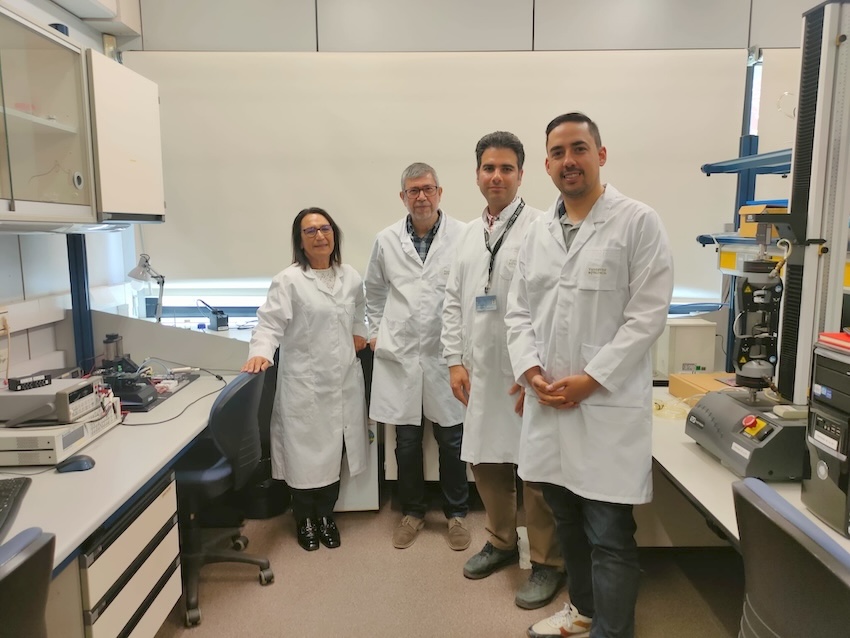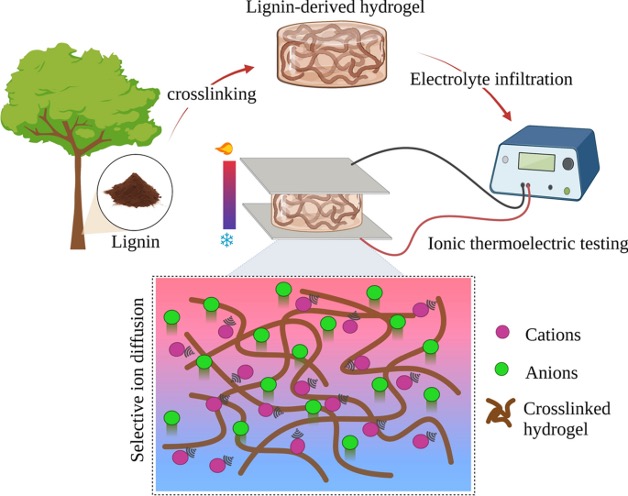A UV team develops a pioneering solution for converting wood waste into electricity
- Press Office
- April 10th, 2024

In a revolutionary advance towards energy sustainability, an international research team led by Mario Culebras, professor in the Department of Physical Chemistry at the Universitat de València and researcher at the UV's Institute of Materials Science, and Maurice Collins, professor at the University of Limerick, have announced the development of highly efficient ionic thermoelectric materials using innovative lignin-derived hydrogels. The aim of the project is to generate energy in a more sustainable way.
In a revolutionary advance towards energy sustainability, an international research team led by Mario Culebras, professor in the Department of Physical Chemistry at the Universitat de València and researcher at the UV's Institute of Materials Science, and Maurice Collins, professor at the University of Limerick, have announced the development of highly efficient ionic thermoelectric materials using innovative lignin-derived hydrogels.
The study, the results of which have recently been published in the highly regarded journal Advanced Composites and Hybrid Materials (IF=20), presents a pioneering solution for converting low-grade waste heat into electricity, thereby addressing the challenges of climate change and moving towards more sustainable development. The key to success lies in the use of lignin, an abundant by-product of the paper industry, to create hydrogels with thermoelectric properties. These hydrogels prove to be surprisingly effective materials for ionic thermoelectricity, opening up new possibilities in the field of energy generation.
The team tested various compositions to understand how variations in lignin concentrations, electrolyte types, crosslinking agent concentrations and electrolytes affect the ionic thermoelectric performance of the hydrogels. The optimised hydrogel, impregnated with a 6 M KOH electrolyte, demonstrated an astounding ionic conductivity of 226.5 mS/cm and a superior Seebeck coefficient of 13 mV/K. This culminated in an exceptional power factor of 3831 µW/m-K2, generating an outstanding ionic figure of merit (ZTi) of 3.75. "These values outperform most state-of-the-art materials, establishing this lignin-derived hydrogel as one of the most efficient ionic thermoelectric materials known to date," explains Mario Culebras. Culebras adds that "this exciting breakthrough marks a milestone in the search for sustainable solutions for energy generation and highlights the ability of science to transform by-products into valuable sources of innovation".
The research team included Nicolas Menendez, Ángela Quero Montés, Mohammad Ali Nasiri, Andres Cantarero and Clara Gomez from the Universitat de València; Jorge García-Cañadas from the Universitat Jaume I de Castelló; and Muhammad Muddasar from the University of Limerick, who is the lead author of the article.
The work has been possible thanks to the funding obtained by both research groups in the projects CONVERSUS (PID2021-124845OA-I00) funded by MCIN/AEI/ 10.13039/501100011033 and the "European Union NextGenerationEU/PRTR" and the NXTGENWOOD project (2019PROG704) funded by DAFM.
You can read the article here.



















